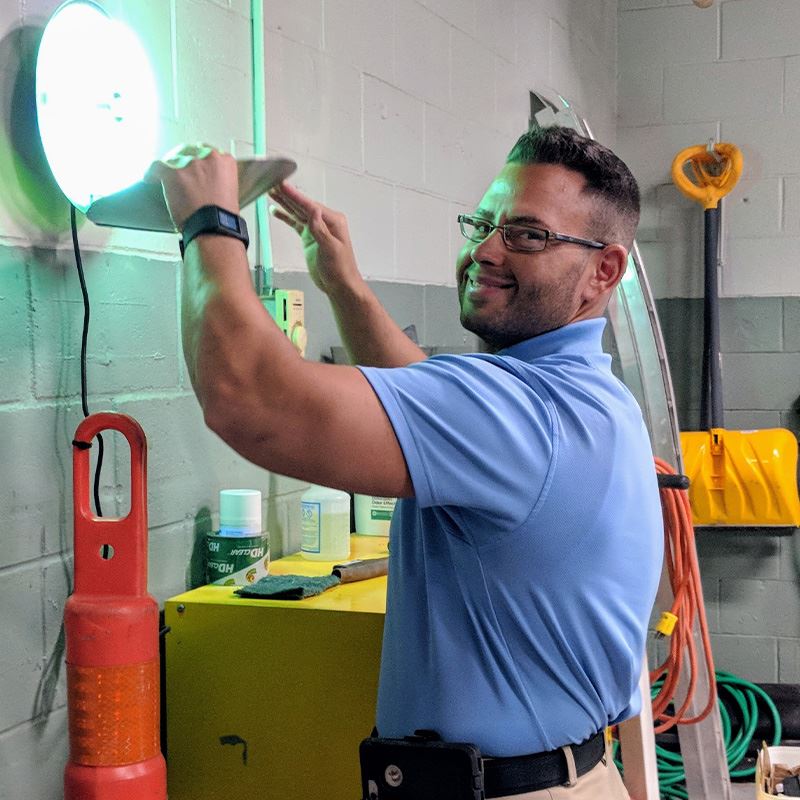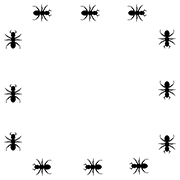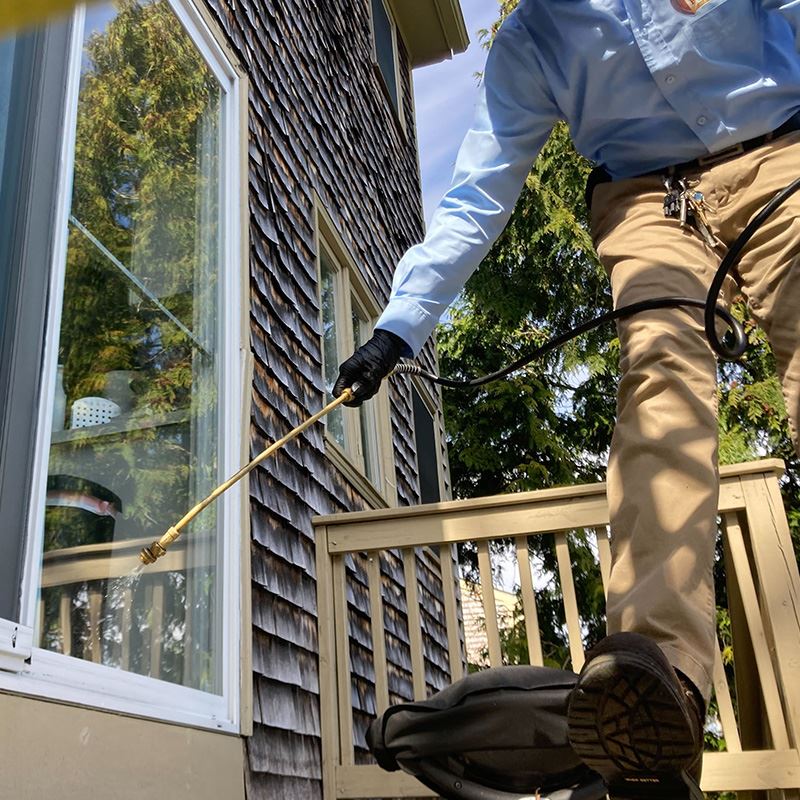
Rat Exterminator in Providence
Effective Rat Control Solutions in Providence and Rhode Island
In New England, including Providence, you’ll primarily encounter two common types of rats: the Norway rat (Rattus norvegicus) and the Roof rat (Rattus rattus). Both species can cause property damage and transmit diseases to humans and pets through their droppings, urine, and bites. Prompt intervention is crucial to minimize potential damage and health risks associated with these pests.
Rats multiply quickly, and infestations can get out of control in a matter of weeks. If you suspect a rat infestation on your property in Providence or Massachusetts, it’s important to address the issue promptly by contacting Guardian Pest Control. Our Providence rat exterminators are ready to help you eliminate this common pest using proven rodent control methods. Our techniques are tailored to effectively manage rat populations and prevent future infestations.
Have our rat exterminators inspect your property as soon as possible. Call (401) 812-3033 to request service.
Health Risks Linked to Rat Infestations
Rat infestations can pose significant health risks to humans and animals due to the potential transmission of various diseases and allergens.
Below are critical health risks associated with rat infestations in Providence:
- Hantavirus Pulmonary Syndrome (HPS): A severe respiratory disease spread through contact with contaminated rat urine, droppings, or saliva.
- Leptospirosis: A bacterial infection transmitted through contaminated water or soil. Early detection is crucial to reducing impact.
- Salmonellosis: Rats can carry Salmonella, which can contaminate food sources and lead to food poisoning.
- Rat-Bite Fever (RBF): Spread through bites or contact with rat saliva or droppings.
- Allergies & Asthma: Rat allergens can worsen respiratory problems and irritate skin.
- Plague: Rare, but rodents can carry fleas that transmit bacterial diseases.
- Ectoparasites: Rats often host fleas, ticks, and mites, introducing additional pest risks.
These health concerns highlight why immediate action is essential. Combining professional services with supportive options like pest control services or moisture-related adjustments through moisture control services can help minimize future risks.
Common Rat Species in New England
The Norway Rat (Rattus norvegicus)
- Larger and heavier than the roof rat
- Brown or gray with a robust, stocky build
- Prefers to live in burrows underground
- Often found in basements, crawl spaces, and around foundations
- Less adept at climbing than Roof rats
The Norway rat’s burrowing behavior can undermine building foundations and create structural issues in homes and commercial buildings. Effective removal requires understanding their behavior and nesting patterns.
The Roof Rat (Rattus rattus)
- Sleeker and more agile, with a slender build
- Typically black or brown
- Prefers elevated nesting sites such as attics, roofs, rafters, and trees
- Excellent climbers, capable of entering homes from upper levels
Both species can cause extensive damage and require professional attention to ensure lasting removal.
"Friendly techs and great customer service."We've used Guardian Pest Control for years and are really happy with them. The techs are always so friendly and customer ...
- Melissa T.


Get Rid of Rats Fast with Guardian Pest Control
Our trusted rodent control company employs a variety of methods to effectively get rid of rats. When you schedule a service with our Providence rat exterminators, you can expect:
- An Initial Inspection and Assessment: The first step in our process is a detailed inspection of the affected area to determine the extent of the infestation, identify entry points, and assess the best course of action. This comprehensive evaluation ensures all potential rat entry points are recognized and addressed to prevent future invasions.
- Targeted Rodent Treatment: Depending on the situation, our rodent control specialists may implement techniques such as exclusion, sealing entry points, trapping, or targeted baiting to eliminate the infestation efficiently and safely.
- Sanitation and Clean-Up: Cleaning areas with rat activity helps remove food sources and contamination. Improved sanitation reduces the chance of reinfestation.
- Environmental Modifications: Addressing moisture issues, reducing clutter, and modifying outdoor areas can make environments less attractive to rats and limit their return.
Our rat control professionals follow all local regulations regarding rodenticides and safety measures. We take care to minimize risks to non-target animals and the environment, prioritizing eco-friendly solutions in alignment with our commitment to transparent, sustainable practices.
If you’ve noticed early signs of a rat infestation—such as droppings, scratching noises, gnaw marks, or foul odors—contact our Providence rat extermination experts immediately. We provide fast, effective solutions tailored to your property’s needs.
We may also recommend pairing your rat inspection with additional pest services such as ant control or wood-damaging insect inspections like termite control, depending on what we find during your assessment.
Get a free estimate for your rat control treatment by calling (401) 812-3033 or by contacting us online.
Rat Control FAQ
How Can I Identify a Rat Infestation in My Home?
Look for telltale signs such as droppings, gnaw marks, greasy smudges, and paw prints or tracks. Scratching noises at night often indicate rat nests in walls or attics. Noticing these signs early can prevent larger infestations.
Is Professional Rat Control in Rhode Island Necessary?
Yes. DIY methods are limited in effectiveness. Professional services provide long-term solutions by addressing rat behavior, using specialized equipment, and ensuring safe removal procedures. Professionals also implement preventive measures to minimize future risks.
What Preventative Measures Can I Take to Avoid Rat Infestations?
Seal entry points, maintain cleanliness, and manage waste effectively. Store food in secure containers and monitor areas like basements and attics regularly. These practices, combined with inspections from a trained professional, enhance your home’s protection.



